
Harald Martenstein (born 9 September 1953, in Mainz) is a German journalist and author.

Harald Martenstein (born 9 September 1953, in Mainz) is a German journalist and author.
Martenstein studied History and Romance Studies in Freiburg. From 1981 to 1988, he was a journalist at the Stuttgarter Zeitung and from 1988 to 1997 he was a journalist at Tagesspiegel in Berlin. Then, Martenstein took up for a short time the line of the culture editorship at the Abendzeitung (AZ) in Munich. However, he returned a little later as senior editor to the Tagesspiegel. Since 2002, he has written a column for Die Zeit titled "Lebenszeichen", which since May 24, 2007 appears in Zeit-Magazin LEBEN (a supplement to Die Zeit) as "Harald Martenstein". Since 2004 Martenstein also writes a column for GEO Kompakt. [1] [2] His second novel, Gefühlte Nähe (Felt close) received rather critical reviews. [3]
In 2004, he received the Egon-Erwin-Kisch-Preis for the second best investigative report published in German in 2004. Martenstein had dealt with the internal conflicts in Suhrkamp, a major publisher of literary works with longstanding legal conflicts between its owners.
In February 2007, Martenstein's novel debut Heimweg was released and later won the Corine Debütpreis. He has also published several volumes of his collected columns under different titles.
Martenstein lives in Berlin-Kreuzberg.

Reinhard Mohn was a German billionaire businessman and philanthropist. Under his leadership, Bertelsmann, once a medium-sized printing and publishing house, established in 1835, developed into a global media conglomerate. In 1977, he founded the non-profit Bertelsmann Stiftung, which is today one of the largest foundations in Germany, with worldwide reach.
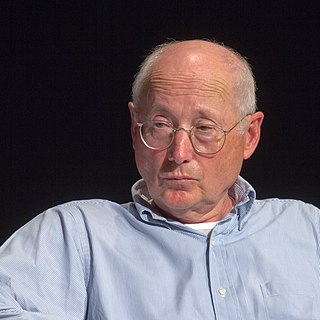
Stefan Aust is a German journalist. He was the editor-in-chief of the weekly news magazine Der Spiegel from 1994 to February 2008 and has been the publisher of the conservative leading Die Welt newspaper since 2014 and the paper's editor until December 2016.

The Bertelsmann Stiftung is an independent foundation under private law, based in Gütersloh, Germany. It was founded in 1977 by Reinhard Mohn as the result of social, corporate and fiscal considerations. The foundation states that it promotes "reform processes" and "the principles of entrepreneurial activity" to build a "future-oriented society".

Hubert Fichte was a German novelist.
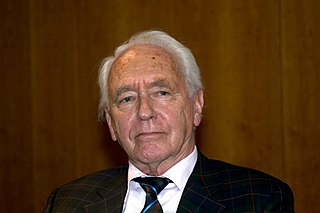
Wolf Dietrich Schneider was a German journalist, author, and language critic. After World War II, he learned journalism on the job with Die Neue Zeitung, a newspaper published by the US military government. He later worked as a correspondent in Washington for the Süddeutsche Zeitung, then as editor-in-chief and from 1969 manager of the publishing house of Stern. He moved to the Springer Press in 1971. From 1979 to 1995, he was the first director of a school for journalists in Hamburg, shaping generations of journalists. He wrote many publications about the German language, becoming an authority. He promoted a concise style, and opposed anglicisms and the German orthography reform.

Doris Gercke is a German writer of crime thrillers. She also works under the nom de plume Mary-Jo Morell.
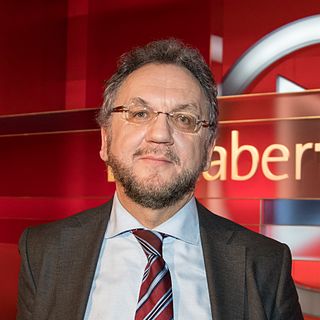
Heribert Prantl is a German author, journalist and jurist. At the Süddeutsche Zeitung he was head of the department of domestic policy from 1995 to 2017, head of the department "opinion" from 2018 to 2019, member of the chief editors from 2011 to 2019 and is now columnist and author. Since 2002 he has been a lecturer at the faculty of law at Bielefeld University, where he was appointed honorary professor in 2010.

Mario Szenessy was a Hungarian-German author, translator, and literary critic.
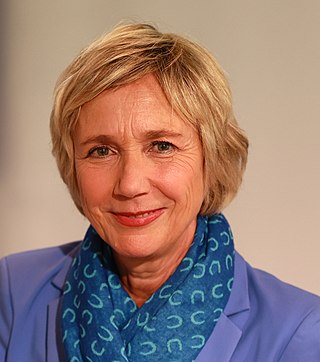
Amelie Fried is a German writer and television presenter. Her father, Kurt Fried, is the creator-publisher of Schwäbische Donauzeitung, nowadays a part of Südwest Presse. She studied journalism and film at university. She has worked extensively in television and has published numerous books. Her 2008 book Schuhhaus Pallas. Wie meine Familie sich gegen die Nazis wehrte deals with her family's persecution in Nazi Germany. The book received significant media attention and has been the subject of much debate.
Hermann Vetter is a German academic and translator who has made many works of English-language philosophy available in German. He specialized in sociology of knowledge and social psychology. His academic career was interrupted by the "student revolutions" of the 1960s.
Thomas von Randow was a German mathematician and journalist who published mathematical and logical puzzles under the pseudonym Zweistein in the "Logelei" column in Die Zeit.
The Theodor Wolff Prize is a German journalism prize. It has been awarded annually since 1962 in five categories, equal prizes of €6,000, by the Federal Association of German Newspaper Publishers. In addition, at irregular intervals, journalists are awarded the Theodor Wolff Prize for their life's work.

Fritz Joachim Raddatz was a German feuilletonist, essayist, biographer, journalist and romancier.

Jürgen Neffe is a German writer.
Franz Herre is a German biographer, historian and journalist.

Joachim Kaiser (1928–2017) was a German musicologist, critic, and journalist. He worked as a senior editor and cultural critic for the Süddeutsche Zeitung from 1959, contributing reviews and articles on music, literature, and theatre. From 1977 to 1996, he was a professor of music history at the State University of Music and Performing Arts Stuttgart.
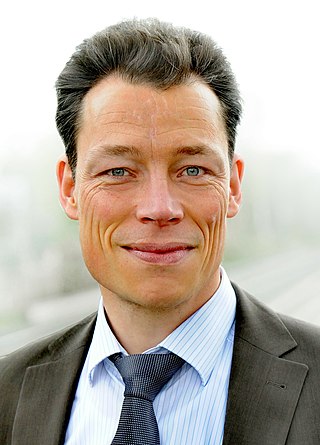
Martin Wehrle is a German journalist, career advisor and non-fiction author. He is also known as an advocate of universal basic income (UBI).
Franz Josef Wagner is a German author and journalist. He was editor-in-chief of Bild, Germany's largest newspaper, launched Elle magazine's German edition, and has written a number of books, one of which was adapted for television.
Heinz Spielmann is a German art historian and museum curator, best known for his books Die große Bertelsmann-Lexikothek. 18: Spektrum der Kunst (1989), Oskar Kokoschka: Leben und Werk (2003), Aus der Nähe: mein Leben mit Künstlern 1950 - 2000 (2014), Carl Otto Czeschka: ein Wiener Künstler in Hamburg (2019), and Kontinuität und Innovation: Bausteine für eine Ikonologie der Moderne (2022). He was awarded the Joost van den Vondel Prize by the Alfred Toepfer Foundation in 1996.

Pieke Biermann is a German crime writer, literary translator and journalist. She is the winner of the 2020 Leipzig Book Fair Translator's Prize. In the 1970s and '80s, she was an activist in the Berlin women's movement.